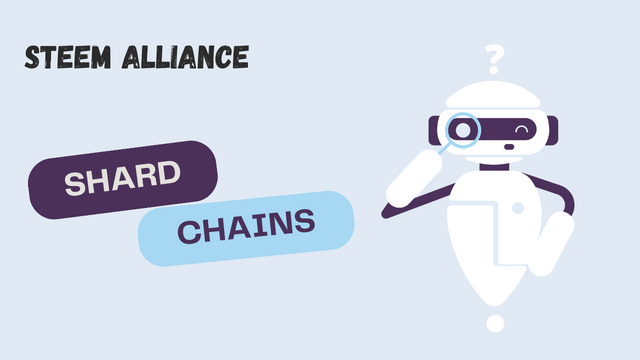Blockchain technology has transformed diverse industries through its provision of decentralized and secure transactional channels. Nevertheless, as blockchain networks become more extensive and used by many people, scalability starts to be a concern. Shard chains represent one potential solution that can address the problems associated with scalability and still maintain decentralization as well as security at their cores. Let us look deeper into the concept of shard chains and their importance in blockchain technology.

What are Shard Chains?
Shard chains or shardings are scalable technologies intended to separate the workload of a blockchain network into smaller and more manageable elements called shards. Each shard operates as an independent chain, processing transactions and intelligent contracts independently. The aim of shard chains is to scale up throughput capacity and transaction processing without compromising on safety or decentralization through spreading workloads across multiple shards.
How Do Shard Chains Work?
Shard Partitioning: The first step is to partition the blockchain network into several shards which will each process a portion of all transactions occurred on it. Shards may be categorized based on factors such as transaction volume, location or computational power they require for mining purposes.
Parallel Processing: After which, all the transactions in every shard are processed concurrently, allowing for parallel execution and increased throughput. This enables shard chains to scale horizontally through parallel processing of shards; thus, accommodating more transactions per second (TPS) as the network grows.
Cross-Shard Communication: The designers of the blockchain system employ communication mechanisms that make it possible to maintain consistency and integrity throughout the entire system. Thus, data and transactions can be safely moved between different shards thus ensuring that there is a uniformity in the whole blockchain.
Benefits of Shard Chains
Scalability: In a nutshell, shard chains contribute significantly towards scalability of blockchain networks because they distribute workloads across multiple shards thereby enabling high volumes of transactions without compromising on performance.
Efficiency: By means of parallelizing transaction processing across different chains that store them, sharding results in faster confirmation times as well as reduced network congestion boosting effective user experience and lowering transaction costs.
Decentralization: Shard chains ensure decentralization by not allowing one party to control everything despite dividing up the network into smaller parts. Every tiny piece of it functions autonomously, having its own group of validators and method for reaching a consensus to maintain blockchain technology’s decentralization.
Challenges and Considerations

Security: As the security across different shard chains has to be kept intact, there is a need to note that some criminals may take advantage of any gaps within individual shards. Strong cryptographic algorithms as well as agreement mechanisms are indispensable in making sure that shard chains remain secure and have good integrity.
Cross-Shard Communication Overhead: Facilitating communication among the different shards increases the complexity and overhead on the network, which can affect its performance and scalability. Low latency cross-shard communication protocols are essential for high throughput rate.
State Synchronization: Consistency across all shard chains is vital for maintaining blockchain network integrity. Mechanisms of state synchronization should be devised to reconcile discrepancies between shards preventing data incongruities from happening.
The Shard Chains Future
Blockchain technology scalability problems can be efficiently resolved by shard chains. It is obvious that with the rising demand for dApps and blockchain-based services, there should be a scalable and efficient blockchain networks.
Within the next couple of years, there will be more research in shard chain technology as blockchains projects and protocols look into innovative ways to increase scalability while maintaining decentralization and security. Through further developments in shard chain implementations as well as protocols, blockchain networks could handle many use cases at scale leading to massive adoption of decentralized technologies.
Conclusion
Shard chains are a good way of dealing with scalability issues on blockchain networks. Seeking parallel processing through breaking down the network into smaller independent shards, the proposed approach enhances throughput, efficiency as well as decentralization which in turn forms basis for next generation Dapps and services.
X Permotion
https://twitter.com/shabbir_saghar/status/1791131037830922255?t=DoyitrHWP1QVP5NMMXVfmQ&s=19
Downvoting a post can decrease pending rewards and make it less visible. Common reasons:
Submit
Upvoted! Thank you for supporting witness @jswit.
Downvoting a post can decrease pending rewards and make it less visible. Common reasons:
Submit
Note:- ✅
Regards,
@jueco
Downvoting a post can decrease pending rewards and make it less visible. Common reasons:
Submit